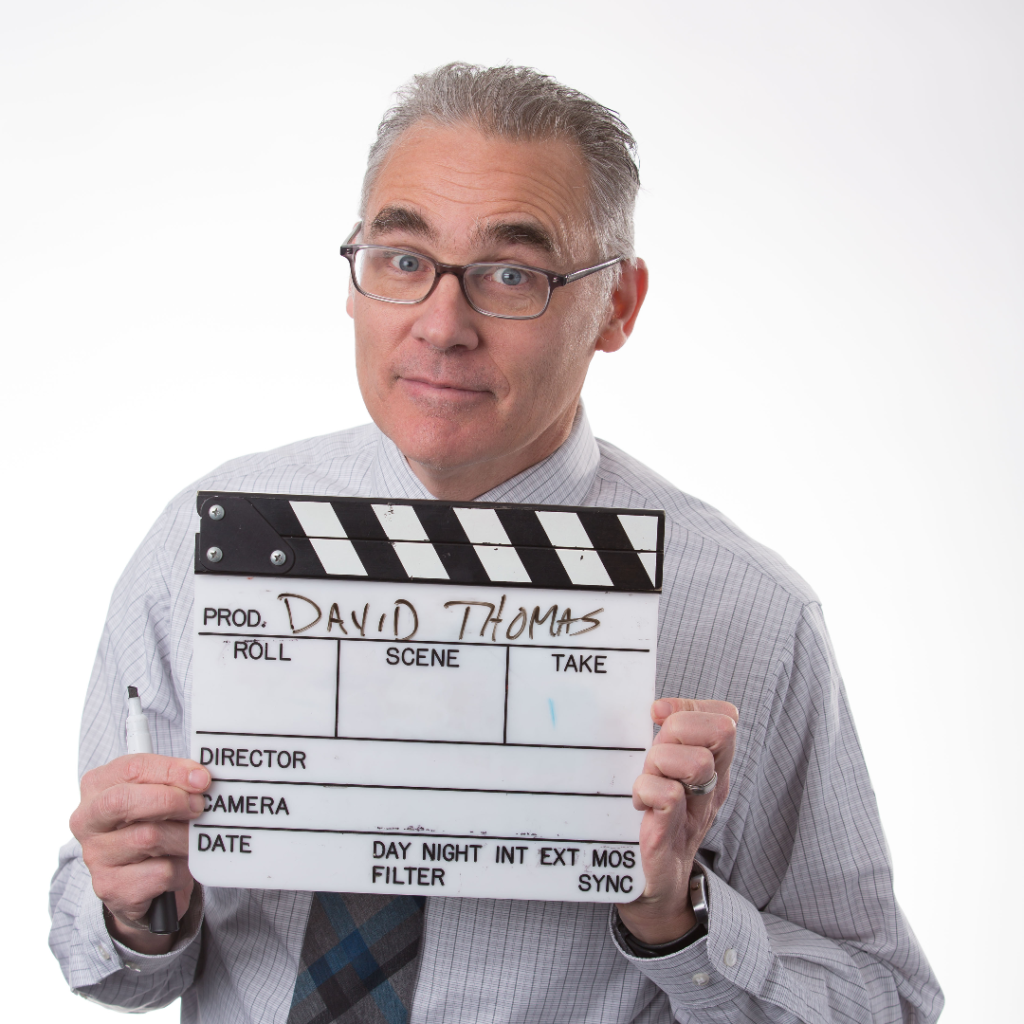
David Thomas
David Thomas Ph.D, is the Executive Director of Online Programs at the University of Denver and Assistant Professor Attendant in the Department of Architecture at the University of Colorado Denver. His research centers around fun, fun objects (like buildings!) and the meaning of play.
A self-described “Professor of Fun,” David is co-author of Fun, Taste and Games (MIT Press), author of the forthcoming Fun in the Workplace, and the co-founder of Professors at Play.
- What kinds of writing do you write?
- Every morning I write “morning pages.” I got this from a book, The Artist’s Way. But I think starting every morning by writing is a wonderful exercise. Beyond writing for work (and there certainly is plenty of that) I write on my academic subject—fun! I love working through a long, complex idea in a bunch of clear steps that helps people see what I am thinking.
- What’s one of your favorite things you’ve written, and why?
- I am proud of Fun, Taste and Games, a book I wrote with my friend John Sharp on MIT Press. The book covers a very dense subject in a readable fashion. At least, that was the point. I have another book coming about fun in the workplace called, Fun in the Workplace. I am proud of the book because it walks through a lot of ideas in an easy to digest format. I am not wild about the title. That was a fight I lost with my editor.
- What’s something you wrestle with in your writing process?
- All these years later, I still wrestle with the writer’s version of the “imposters syndrome”. I have to fight off this feeling that I am not explaining things very eloquently, that I didn’t do enough research and I missed an key point or reference or, worst of all, what I am writing just isn’t that important.
- How would you describe your writing process?
- A quick secret about me. I worked for 20 years as a journalist. Why is that important? I was coached and cajoled to write clearly. My editors liked—one subject, one verb. They didn’t like clauses. They didn’t like the passive voice. They didn’t like complicated words where simple words would do. By the time I got to the academy, that approach was drilled into my head. When I feel like I am not making sense, I start writing shorter sentences. When I feel confused, I stop writing and think about what I am trying to say.
- Because I wrote so much as a journalist, I definitely take the “write first / edit later” approach. I don’t get writer’s block anymore. Because I learned to just start. Sure, it won’t be any good, but I can fix it later.
- For longer stuff, I type out a simple outline. It helps keep me on track.
- An English professor friend once chastised me for not writing paragraphs—thesis sentence, one or more claims and supporting evidence and a conclusion sentence. Sometimes, when I feel like I am going off the rails, I remember to just organize my thoughts into traditional paragraphs!
- To answer the question directly: I would describe my writing style as that of a daredevil jumping off a cliff with the words of all my editors over the years echoing in my head: What exactly are you doing?
- “Hardware” tell-all; for example: Microsoft Word or Google Docs or paper forever? Legal pads or note cards or backs of envelopes? Pencils or pens? No. 2s or mechanical? Bics or Montblancs? Etc.!
- I love this question because I have tried everything! Right now, my kit is:
* Notion for notes. I love this note taking software. And anything worth tracking, webpages, links, PDFs and my notes go here. Also, Notion works on your phone. So, great for taking notes on the go. (And if you are super organized, it has a nice little basic built in database. Awesome!) - * Next stop, Google Docs. If I am writing anything that I intend to share with a co-author or an editor, I just start writing in Docs.
- * If this is an academic paper or book, I start collecting references in Endnote. If you do not use a reference manager for your diss or thesis, you will regret it.
- * Show time: From Docs stuff usually goes to Word for final formatting. Occasionally, it might end up as a PDF or a web page.
- * I still like paper notes. But if they don’t get put into Notion pretty quickly, then they tend not to get used.
- I love this question because I have tried everything! Right now, my kit is:
- A standout feature of your actual desk or virtual desktop that you rather like?
- Again, Notion. I can clip webpages. I can load PDFs. Not only does Notion help me stay organized, it lets me put distractions into a list to look at later. See a cool webpage while looking for something else? Clip it to Notion and read it later! After that, tabs. I am stuck on Chrome tabs. I think I get nervous if I have fewer than 30 tabs open on my computer.
- 3 adjectives that describe that ‘writerly feeling’ when you’re in the zone?
- Focused, calm, delighted
- 3 adjectives that describe that ‘not so writerly feeling’ when you’re hitting a wall?
- Confused, afraid, tired
- What is your Writing Animal Guide (whatever that means to you!) and why?
- Gee. I never thought about this. Probably a monkey since I usually feel like I am one of those 1,000 monkeys trying to type Shakespeare!
- What’s your top piece of writing advice for grad students embarking on their dissertations?
- Just write.
- I remember when I was working on the dissertation, I asked a faculty member—should I read this or that or research this or that? And he said: Just write it.
- He was right.
- Once you learn to “just write”, then you can master the skill of clearing it up, of throwing away stuff you don’t need and figuring out where you have gaps that really need research.
- As a corollary, write every day. I think it is more important to stick with your writing projects than to worry too much about your daily word or page productivity. Some days are better than others. But having the discipline to sit and write every day builds muscles that will always benefit you.
